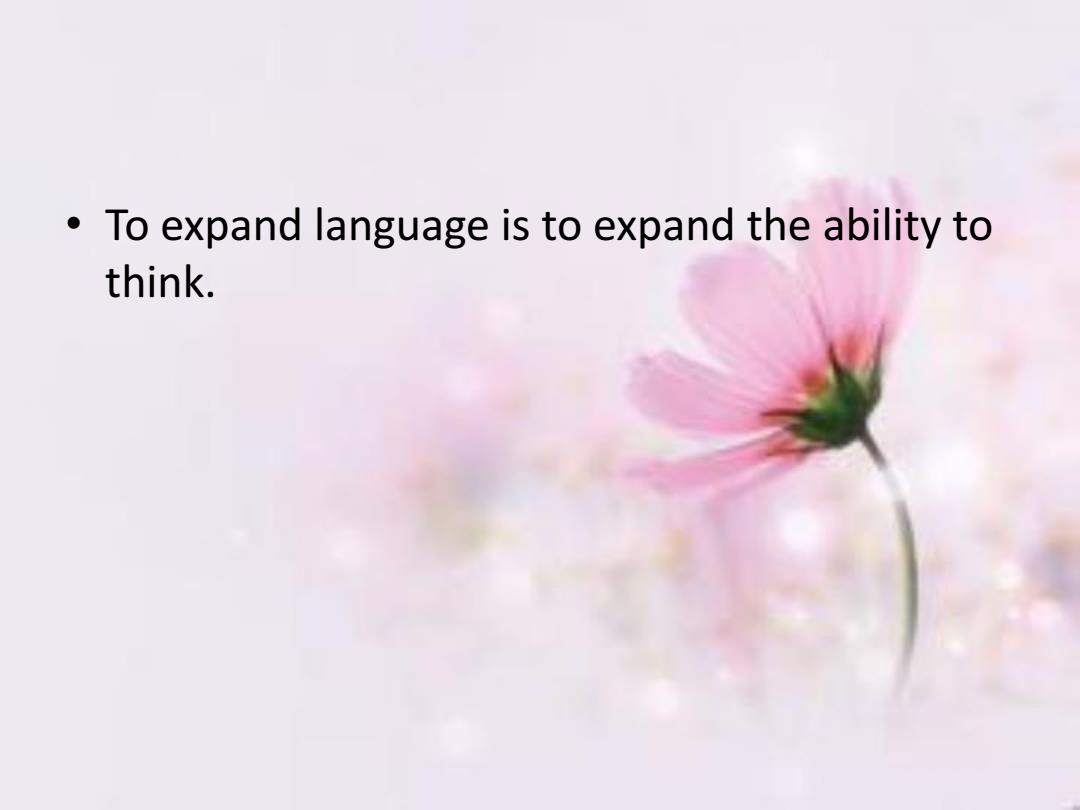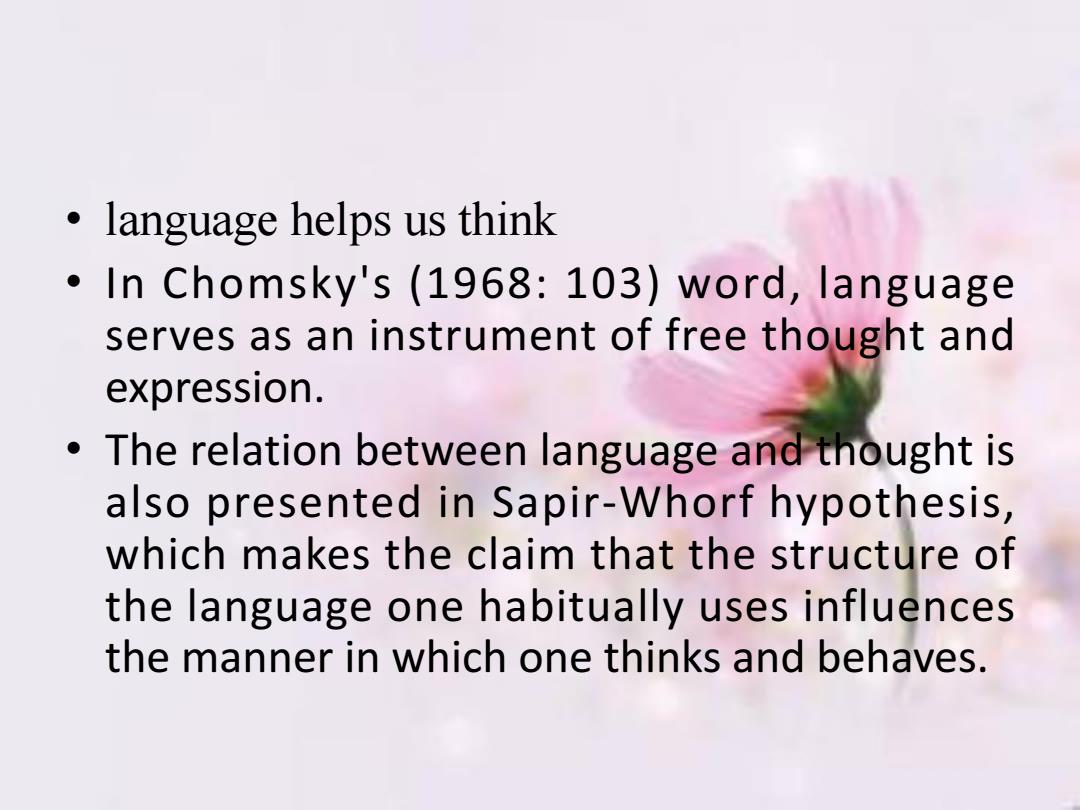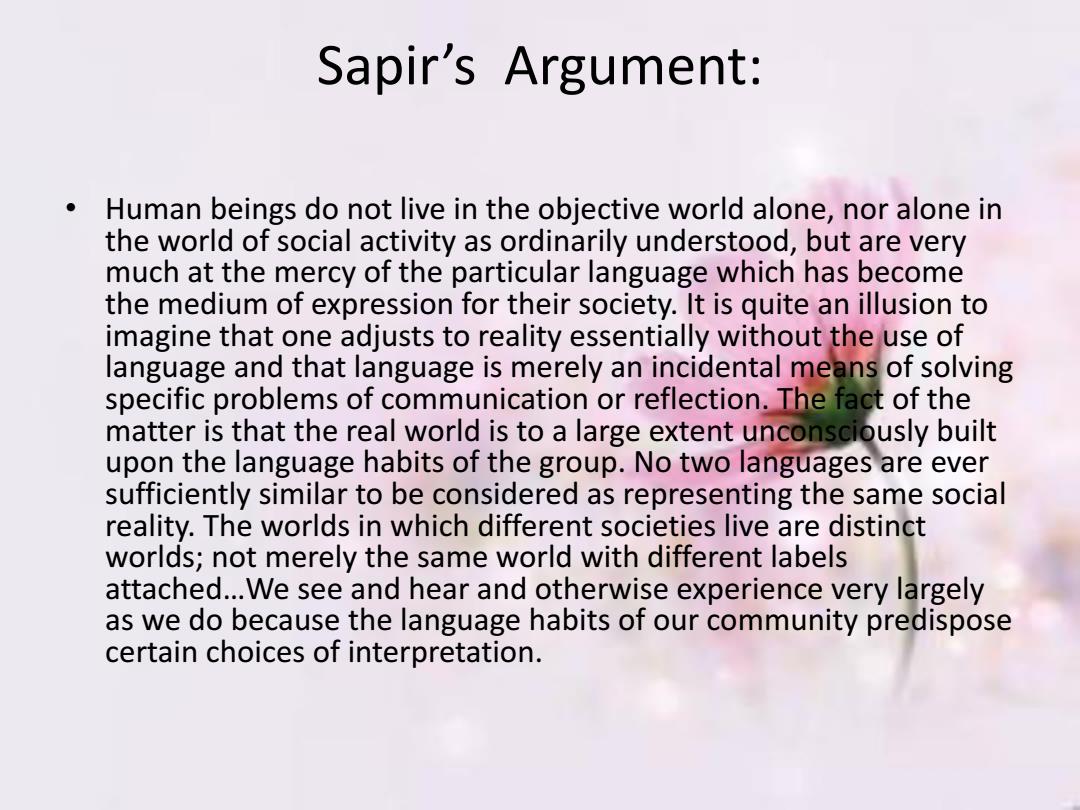
To expand language is to expand the ability to think
• To expand language is to expand the ability to think

language helps us think In Chomsky's (1968:103)word,language serves as an instrument of free thought and expression. The relation between language and thought is also presented in Sapir-Whorf hypothesis, which makes the claim that the structure of the language one habitually uses influences the manner in which one thinks and behaves
• language helps us think • In Chomsky's (1968: 103) word, language serves as an instrument of free thought and expression. • The relation between language and thought is also presented in Sapir-Whorf hypothesis, which makes the claim that the structure of the language one habitually uses influences the manner in which one thinks and behaves

Sapir's Argument: 0 Human beings do not live in the objective world alone,nor alone in the world of social activity as ordinarily understood,but are very much at the mercy of the particular language which has become the medium of expression for their society.It is quite an illusion to imagine that one adjusts to reality essentially without the use of language and that language is merely an incidental means of solving specific problems of communication or reflection.The fact of the matter is that the real world is to a large extent unconsciously built upon the language habits of the group.No two languages are ever sufficiently similar to be considered as representing the same social reality.The worlds in which different societies live are distinct worlds;not merely the same world with different labels attached...We see and hear and otherwise experience very largely as we do because the language habits of our community predispose certain choices of interpretation
Sapir’s Argument: • Human beings do not live in the objective world alone, nor alone in the world of social activity as ordinarily understood, but are very much at the mercy of the particular language which has become the medium of expression for their society. It is quite an illusion to imagine that one adjusts to reality essentially without the use of language and that language is merely an incidental means of solving specific problems of communication or reflection. The fact of the matter is that the real world is to a large extent unconsciously built upon the language habits of the group. No two languages are ever sufficiently similar to be considered as representing the same social reality. The worlds in which different societies live are distinct worlds; not merely the same world with different labels attached…We see and hear and otherwise experience very largely as we do because the language habits of our community predispose certain choices of interpretation